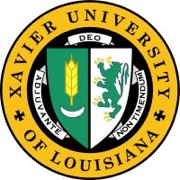Below is a summary of the abstract you submitted. Presenting author(s) is shown in bold.
If any changes need to be made, you can modify the abstract or change the authors.
You can also download a .docx version of this abstract.
If there are any problems, please email Dan at dar78@pitt.edu and he'll take care of them!
This abstract was last modified on March 13, 2024 at 3:57 p.m..

Bacteriophages are viruses that infect and potentially kill bacteria, offering promising alternatives to antibiotic usage. Because of this, scientists have since increased the research on phages and the therapies they may offer. The goal of this study was to extract, isolate, and amplify a phage from an environmental sample and characterize the genes found within. “Barroma” was discovered by Gabrielle Barros and Juleette Akoma in 2023 from a soil sample in New Orleans, Louisiana. The phage was sent to the Hattful Lab at the University of Pittsburgh for sequencing and was found to have 54309 base pairs with a total of 57 potential genes by autoannotation. It belongs to the cluster EK, and the subcluster EK2. Through the use of annotation softwares, like HHpred, DNA master, and phamerator, the genes were further analyzed to determine whether or not each one exists and the functions of each one.
